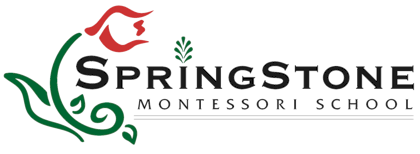What is Montessori?
“Scientific observation has established that education is not what the teacher gives; education is a natural process spontaneously carried out by the human individual, and is acquired not only by listening to words, but by experiences upon the environment. The task of the teacher becomes that of preparing a series of motives of cultural activity, spread over a specially prepared environment, and then refraining from obtrusive interference. Human teachers can only help the great work that is being done, as servants of the master. Doing so, they will be witnesses to the unfolding of the human soul and to the rising of a New Man who will not be the victim of events but will have the clarity of vision to direct and shape the future of human society.”
-Maria Montessori, Education for a New World
Maria Montessori
Dr. Maria Montessori was the first female physician in Italy, graduating from the University of Rome in 1898. She specialized in pediatrics and discovered the marvelous abilities of young children to learn through their senses. Today there are thousands of Montessori schools throughout the U.S. and the world.
Montessori School Educational Framework
The Montessori School approach to learning is the framework of our educational program. SpringStone is a multicultural school, designed to prepare students for higher education and for life. SpringStone School teaches children to be at home in the world of nature. We are a close-knit family of students, educators, parents, and friends of our school. SpringStone uses supplemental curriculum materials, to provide opportunities for enrichment beyond basic curriculum.
Montessori vs Traditional Comparison (pdf)
Why Enroll Your Child at an Early Age?
The “Formative” (or critical) period of profound sensitivity to learning is from birth to six years. Using his “absorbent mind,” the young child takes in his world with great ease. The clearest example of this absorbent mind is the child’s explosion into speech without any obvious teacher except himself. We build upon this love and ease of learning by providing hundreds of kinds of learning materials for his eyes, hands, and brain to work together as his teacher.
Our Approach to Education
Our teachers are aware of the stages of human development and ensure our curriculum is appropriate for the developmental stages of our children. Achievement at each level of learning leads toward placement of each child in the next phase of his or her education.
We promote active learning (rather than passive) by encouraging spontaneous activities, hands-on learning, and moving from a concrete level of experience to the abstract. Through the principle of “follow the child”, we understand the importance of children to pursuing areas of interest. If a child is not internally motivated in a given area, we encourage children to take interest in that specific area.
Freedom within order: We strive for a balance between freedom, order, and responsibility. We acknowledge that children learn in different ways and at different paces. Each child is a unique human being with unique learning styles and needs as an individual learner.
Our environment is open to children with diverse learning styles, but our primary focus will always be the well-being and best interests of our students who will thrive in our Montessori environment. In every case, we assess whether our school is able to meet a child’s needs while keeping the integrity of the classroom, and if not, we will recommend an appropriate alternative.
